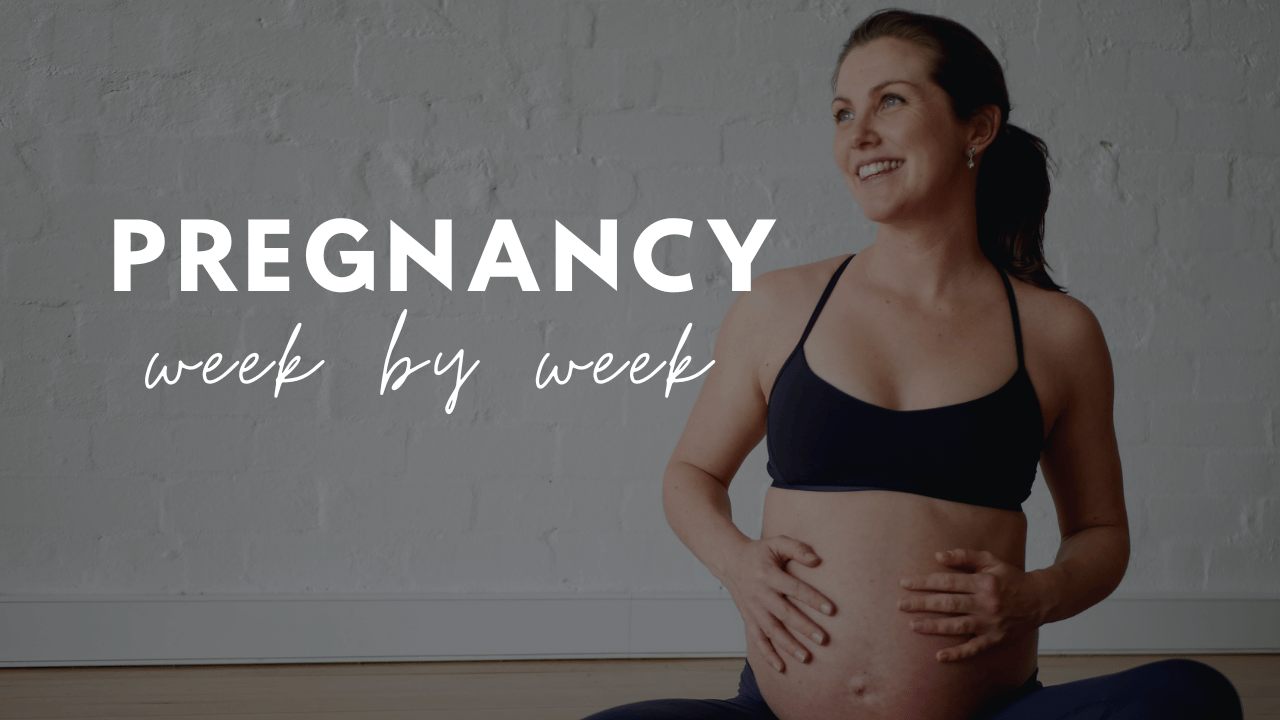Is It Safe to Exercise on Your Back While Pregnant?

Is It Safe to Exercise on Your Back While Pregnant?
Do you love sleeping on your back when pregnant? What about exercising on your back when pregnant? Can you do it? Does it increase the risk of stillbirth?
I want to help clear up some of the conflicting information that may be causing you some concern. So, let's just state this:
Avoid Laying on your Back while Pregnant after 16 Weeks! Why?
When you lie on your back during pregnancy, or supine position, especially later on, the weight of your uterus can compress a major blood vessel, called the vena cava.
And what's the issue with this? This disrupts blood flow to your baby and leaves you nauseated, dizzy, and short of breath.
It's common for pregnant women to sleep on their backs.
You will likely all toss and turn during a night's sleep. Just because you go to sleep on your side doesn't mean you will stay in that position all night.
So if you wake up on your back, don't worry.
Just turn over or roll on to your side. Get comfortable again before falling asleep again.
Easier said than done I know. But every little thing you can do to get a better night sleep is worth it. If you do fall asleep on your back, you will most likely wake up within a few minutes.
Why?
Because the position is so uncomfortable after the first trimester of pregnancy. Did you know that when you sleep on your back while pregnant, your abdomen rests on your intestines and major blood vessels?
Well this becomes increasingly uncomfortable as your belly and baby grows.
The pressure from this position can cause:
1. Backaches
2. Hemorrhoids
3. Breathing issues
4. Digestive problems
5. Low blood pressure
What If I Wake Up on My Back While Pregnant?
Should you happen to wake up on your back in the middle of the night, don't start stressing.
Your body is an amazing thing.
Unwanted stress will cause more problems.
Just roll over on to your side.
Try using a pregnancy pillow to keep you sleeping on your side.
The best way to sleep during the second half of pregnancy is on your side. When you chat to your doctor, they will likely recommend you sleep on the left side when pregnant.
Why?
Because the vena cava is located to right of your spine. And therefore, sleeping on your left side allows blood to flow more freely to your baby.
While this is the preferred side, it shouldn't make a big difference. You see, you need to do what's comfortable. And as most women will tell you, they slept on both sides without issue.
How Can I Get More Comfortable?
Bend your knees and place two or more pillows between them. This keeps the pressure off the muscles around your hips and pelvis.
Place a wedge-shaped pillow under your bump. This may help to ease the strain on your back. Consider buying a pregnancy pillow. This can help you find the perfect position.
Can You Lie on Your Back?
Here's What the American Pregnancy Association Says:
The best side to sleep on is your left side. Sleeping on your left side while pregnant will help pump more nutrients and blood to your placenta and your baby.
Sleeping on your left side also keeps the uterus off the liver, which is on your abdomen's right side.
When you sleep on your side, keep your knees and legs bent. By bending your legs and knees, you're keeping your heart from working overtime.
Exercising on Your Back
You should try to avoid exercises that involve lying flat on your back for long periods of time after the first trimester. This is why my prenatal yoga workouts are modified for pregnancy.
Without getting too technical, the emphasis is 'lying flat on your back for long periods.'
So yes, there are some good exercises (bridges in inversion position) you can do as long as you are not in the position for a long time or your back is not constantly flat on the floor.
But I want to make it clear that if you are 'at risk' or carrying too much weight then please avoid any position or exercise on your back after 16 weeks.

Why is Time on Your Back the Key Factor?
For the same reasons as why you should avoid sleeping on your back. The weight of your enlarging uterus could compress major blood vessels and restrict circulation to you and your baby.
Stillbirth
According to a 2017 study, researchers found that women who sleep on their backs during their third trimesters may also be putting undue stress on their fetuses.
New research shows sleeping on your back in pregnancy could increase the risk of stillbirth by cutting blood flow to your baby.
A recent study found that sleeping on your back reduced blood flow in the umbilical cord by 11.2 per cent on average.
Oxygen reaching the unborn baby in the womb reduced by more than six per cent compared to when the women lay on their side.
This study has caused experts to warn that sleeping on back during final three months could harm babies.
They say it may cut blood flow to the unborn child in the womb through umbilical cord.
They have advised pregnant women to sleep on their side to reduce risk of still birth in final months.
Stillbirths
Doctors say that many stillbirths show signs of the baby having been starved of oxygen.
Professor Anna David, of University College London, senior author of the UK-New Zealand study, said the findings ‘may partially explain why some women with an apparently healthy, normal-sized baby nevertheless suffer a stillbirth.
They confirm how the message to mums to sleep on their side in late pregnancy is very important for a healthy pregnancy.
Women who go to sleep on their back, taking the weight of their bump, are believed to put pressure on a major vein carrying blood to the heart from the lower part of the body.
This may lead to the heart pumping less effectively and less oxygen-rich blood being transferred to the baby.
The study of the 22 New Zealand women found they had substantially less blood flowing through the vein when on their back compared to when they were on their side.
Obstructive Sleep Apnea in Pregnancy
Your breathing during sleep may change during pregnancy for various reasons.
You may even notice a clear progression from soft to loud snoring, and even pauses or disruptions of breathing that characterize a condition called sleep apnea.
Sleep apnea as it occurs in pregnancy has clearly recognized:
1. Risk Factors
Your snoring progressively increases in severity and frequency during pregnancy. And if your airway is further disturbed, sleep apnea may occur.
Sleep apnea is characterized by pauses in breathing during sleep that last for at least 10 seconds, and that are associated with awakenings (called arousals) and drops in the oxygen levels of the blood.
Fortunately, the overall risk of developing sleep apnea during pregnancy is relatively low.
Due to a couple of factors:
1. First, levels of progesterone are high during pregnancy - an apparently protective state, since the hormone activates muscles that dilate the airway. Progesterone increases the brain's responsiveness to carbon dioxide levels.
2. Second, due to physical discomfort associated with late pregnancy, less time is spent sleeping on the back, which is associated with an increased risk of sleep apnea. It's estimated to affect 10% of pregnant women.
2. Symptoms
a. Snoring
b. Breathing pauses or shortness of breath in sleep.
c. Waking with choking, snorting, or gasping.
d. Excessive daytime sleepiness.
e. Frequent urination at night (nocturia).
3. Treatment
So what if you have sleep apnea? then it is important to treat pregnancy-related sleep apnea, as it can contribute to adverse consequences in both the mother and fetus.
After delivery and the ensuing loss of weight, sleep apnea will improve. Studies show that a measure of sleep apnea severity called the apnea-hypopnea index (AHI) normalizes after delivery.
What can you do? Women who slept on the sides were better off. So, during pregnancy, it can be helpful for you to sleep on your side.
Takeaway?
Whether you're in your first trimester or third, you should try sleeping in the position that's best for your body and your baby.
Yes, you should avoid sleeping on your back while pregnant, as it can cause pain and other health issues. But it's important that you try to sleep as peacefully as possible.
If you do happen to find yourself sleeping on your back.
Don't worry.
Your body will turn itself over.
As far as performing exercises on your back; the key point is to not remain on your back for an extended period of time. If you are moving and not negatively restricting circulation then you are OK.
If you are in the 'at risk' category then avoid being on your back including avoiding bridges.





